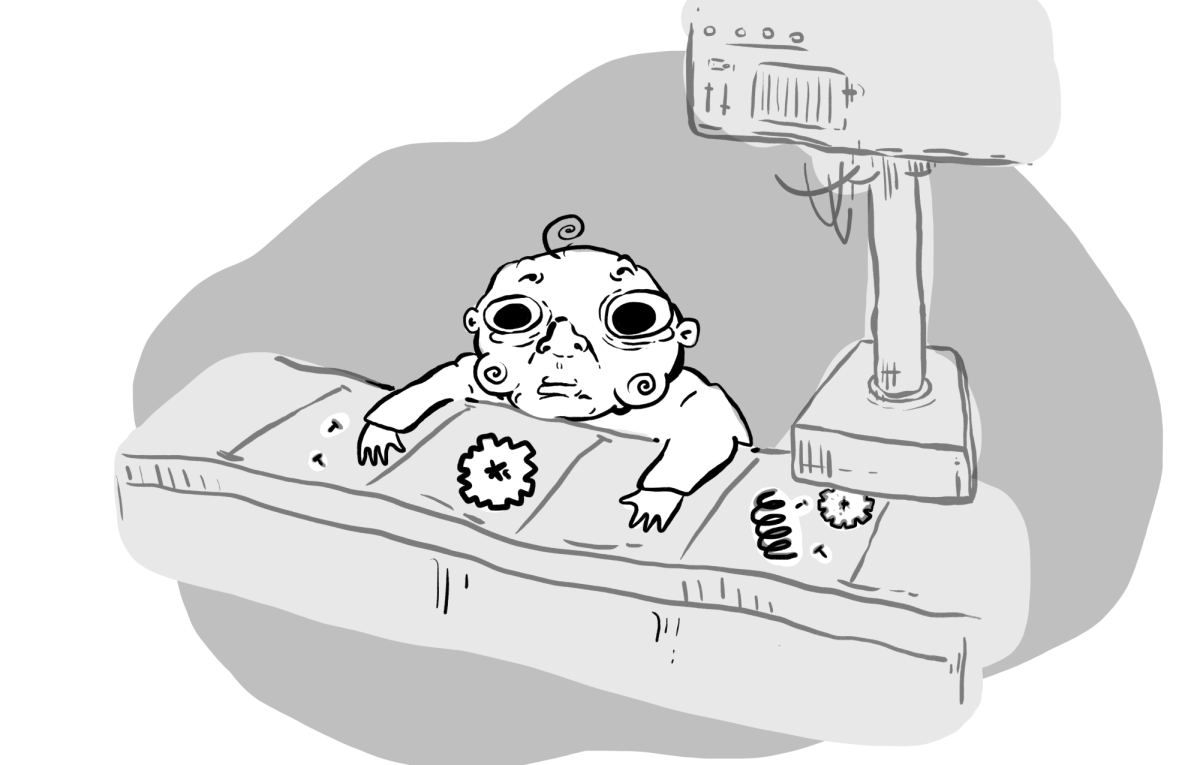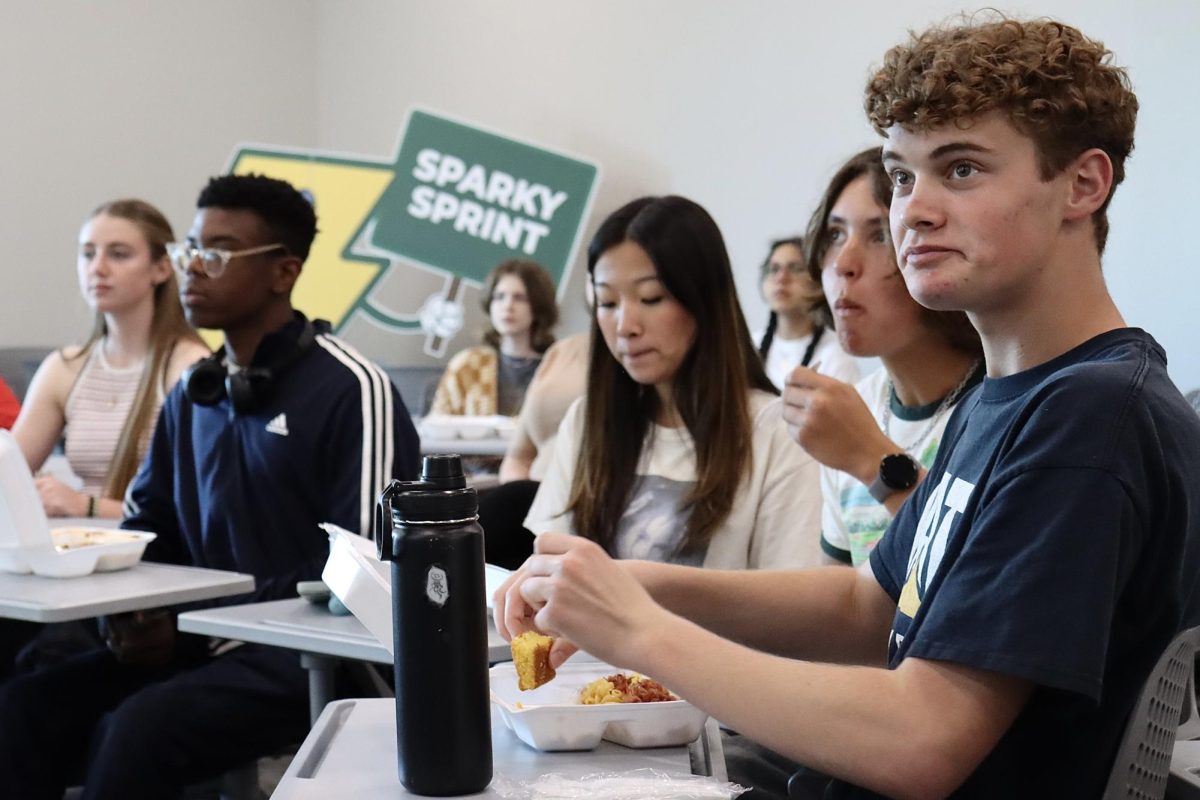Dear Readers,
The epitome of your school life and future career choice is seemingly decided by that math test you just flunked. Grades seem to encompass the minds of the youth these days – no matter if it’s an F or an A – and stresses about that one letter arise no matter how long you study.
On top of this, classmates perennially compare themselves to one another in hopes that being “better” than their peers will somehow increase their happiness. A project, homework assignment, test, or quiz, will almost always lead to: “What grade did you get?”
Teachers are seeing the impact and stress that grade competitiveness has on students at Shorecrest first-hand. US Learning Specialist Dr. Jennifer Hart said, “[Grade competitiveness] creates stress and anxiety and can lower self-esteem. Some students can develop a fear of failure, which will result in them not taking risks and growing.”
Not only does this competition affect students mentally, but it also can push them to do unethical things. Dr. Hart said, “Competition can lead to some students becoming desperate and resorting to academic dishonesty.”
This competitiveness has seeped its way into classrooms and caused students to use harsh language toward each other, worrying teachers and faculty. US Counselor Brian Wiley said, “Kids would talk down to each other for not making a certain grade. Students are very competitive here. I’ve heard, ‘Oh you’re so dumb’ and very hurtful comments.”
While there are negative aspects to this competition, positive parts still shine through. When asked about the beneficial side of grade competitiveness, Dr. Hart said, “It can motivate students to achieve academic goals and can build resilience or perseverance. When faced with a challenge, students’ self-confidence can be boosted because they did better than others, which can create a sense of pride.”
Boasting about grades also starts to give peers uneasiness about their successes. Junior Georgia Kurland said, “People express their grades to fill their own ego, and because of that, they put other people down in the process.”
The positive side of grade competitiveness can overshadow the real harm it causes students. Dr. Hart said, “There have been some students that have spoken to [Wiley] and me about the toxic, competitive classroom environment, and I say toxic because that is the word used by students. We’ve listened to students tell us that their peers take great pride in being the best academically, and they’re making sure to make efforts to make others feel small and stupid.”
Kurland said, “There’s a lot of proving yourself when there doesn’t need to be…People let grades get in the way of their friendships and relationships, which at the end of the day, it won’t really matter once we’ve started our careers.”
Students are aware of this detrimental attitude and often attempt to escape this type of conversation. Junior Nicholas Canizares said, “I hate telling people that I do well because it doesn’t feel good to put someone else down…Then it also doesn’t feel great to tell someone when I did bad and they did amazing.”
Referring to his personal experience in school, Wiley said, “I wasn’t the best test taker in high school, and my friends were more academically advanced than me. I began to remove myself from my friend group when they began to get competitive with the grades because I felt like I didn’t belong, and I didn’t feel good…I felt like I wasn’t able to contribute something meaningful.”
People are seeing first-hand how this academic stress can mentally and emotionally affect students, but what can be done to solve this issue?
Not only is Shorecrest’s Center For Academic Excellence and Student Well-Being zeroing in on supporting students who find themselves in an unhealthy competitive situation, but teachers and Shorecrest as a whole aim to foster a better culture of success.
Regarding what teachers can do to create a positive space for students to have healthy competition, Sixth Grade Science Teacher Curtis Cruise has started to implement a new grading style for his middle school classroom.
Inspired by a workshop he attended for the National Science Teaching Association (NSTA), Cruise has begun to grade holistically for non-test assignments. This approach grades students without letters and sorts them into one of five categories: exemplary, proficient, developing, emerging, and no attempt, which is based on how well they demonstrated their understanding.
“I think that it’s a healthier approach for the students. I’ve already found that the kids will kind of push themselves…It makes the competitiveness more internalized with the students themselves and how they can improve instead of comparing themselves to other students,” Cruise said.
This grading approach can seep its way into other classrooms, not just science. Eighth Grade English Teacher Lizz Angello believes that this style of student evaluation could become an asset for her students, especially regarding essays.
“Stress is tied to a number, and when the number goes away, a lot of that stress really does go away too,” said Angello. “There’s something about a number that feels so judgmental.”
Without numbers, students can detach themselves from what they believe is a poor grade and know that they understand what is being taught to them. Angello said, “I still don’t think I could tell you the difference between an essay that’s a 94 and one that’s a 93. What does that even mean? But what is an essay that’s an A, and what is an essay that’s a B? Easy.”
The holistic grading approach benefits students by focusing on their understanding of a topic rather than a rigid number, reducing competition and stress over specific grades.
Starting this approach in middle school plants the necessary roots for students before they enter high school, teaching students how to be graded based on their expression of their understanding and not to determine their success based on the grades of their peers.
Since students recognize the competition as a problem, they are finding ways to avoid comparing their grades with others.
While there is room for improvement to create a better way for healthy competition to arise, the student body as a whole needs to take more action to ensure that they’re uplifting one another instead of putting each other down and allowing room for others to grow academically without being hindered by fears of test grades.
Dr. Hart said, “The more that we model the behavior of building each other up and supporting each other to achieve academic goals, the more likely we are to achieve a healthy academic culture.”
Sincerely,
Your Chronicle Editors




![Thespians pose on a staircase at the District IV Thespian Festival. [Front to back] Luca Baker, Maddison Cirino, Tanyiah Ellison, Alex Lewis, Summer Farkas, Jill Marcus, Ella Mathews, Sanjay Sinha, Isabella Jank, Sofia Lee, Boston Littlepage-Santana, Sally Keane, Tyler Biggar, Tanner Johnson, Jasper Hallock-Wishner, Remy de Paris, Alex Jank, Kaelie Dieter, and Daniel Cooper. Photo by Michael McCarthy.](https://spschronicle.org/wp-content/uploads/2024/12/image1-900x1200.jpg)
































